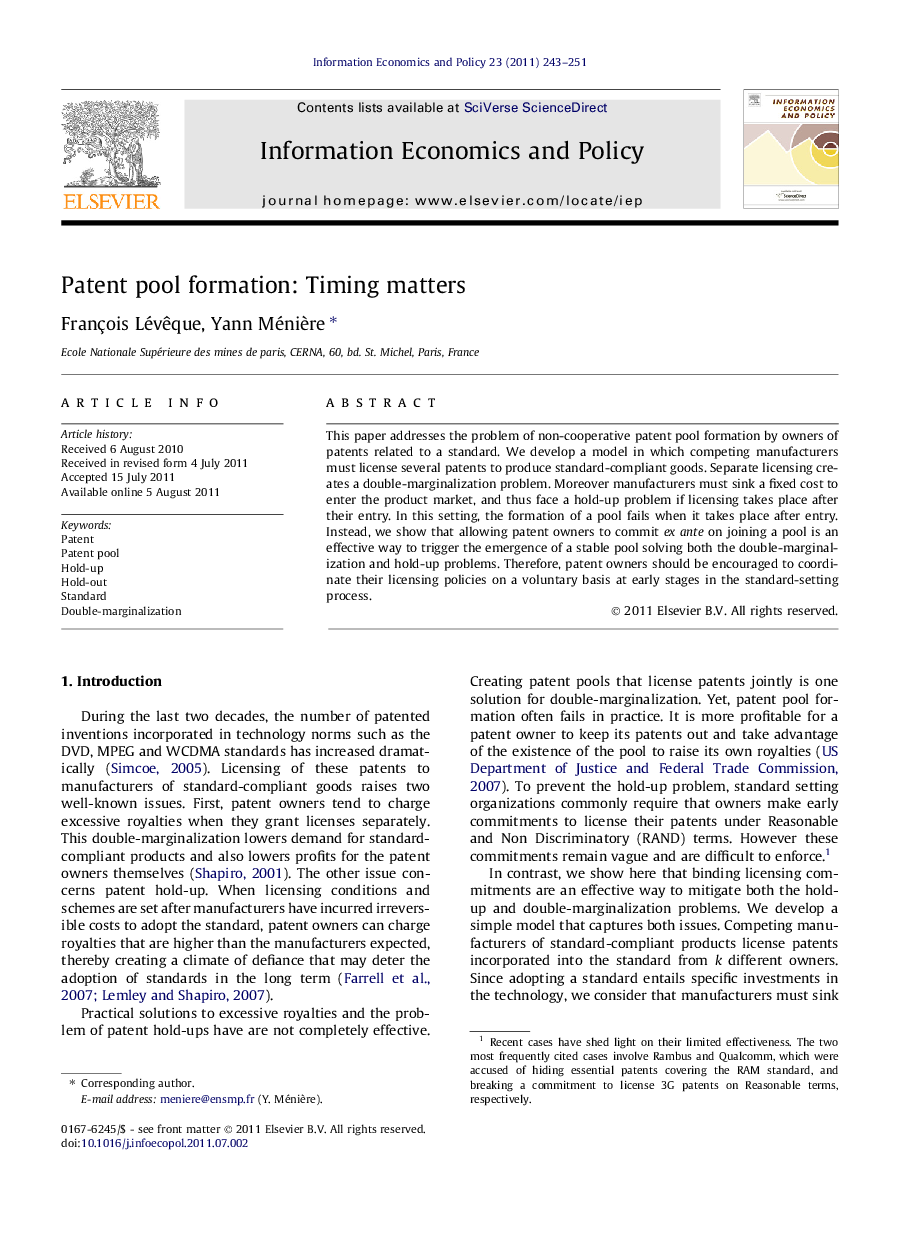| کد مقاله | کد نشریه | سال انتشار | مقاله انگلیسی | نسخه تمام متن |
|---|---|---|---|---|
| 5075747 | 1477186 | 2011 | 9 صفحه PDF | دانلود رایگان |

This paper addresses the problem of non-cooperative patent pool formation by owners of patents related to a standard. We develop a model in which competing manufacturers must license several patents to produce standard-compliant goods. Separate licensing creates a double-marginalization problem. Moreover manufacturers must sink a fixed cost to enter the product market, and thus face a hold-up problem if licensing takes place after their entry. In this setting, the formation of a pool fails when it takes place after entry. Instead, we show that allowing patent owners to commit ex ante on joining a pool is an effective way to trigger the emergence of a stable pool solving both the double-marginalization and hold-up problems. Therefore, patent owners should be encouraged to coordinate their licensing policies on a voluntary basis at early stages in the standard-setting process.
⺠Ex post licensing of essential patents entails hold-up and double marginalization. ⺠Ex post licensing prevents the formation of a stable patent pool. ⺠Ex ante commitments can trigger the formation of a stable pool. ⺠The ex ante pool is welfare improving as compared with the ex post scenario.
Journal: Information Economics and Policy - Volume 23, Issues 3â4, December 2011, Pages 243-251